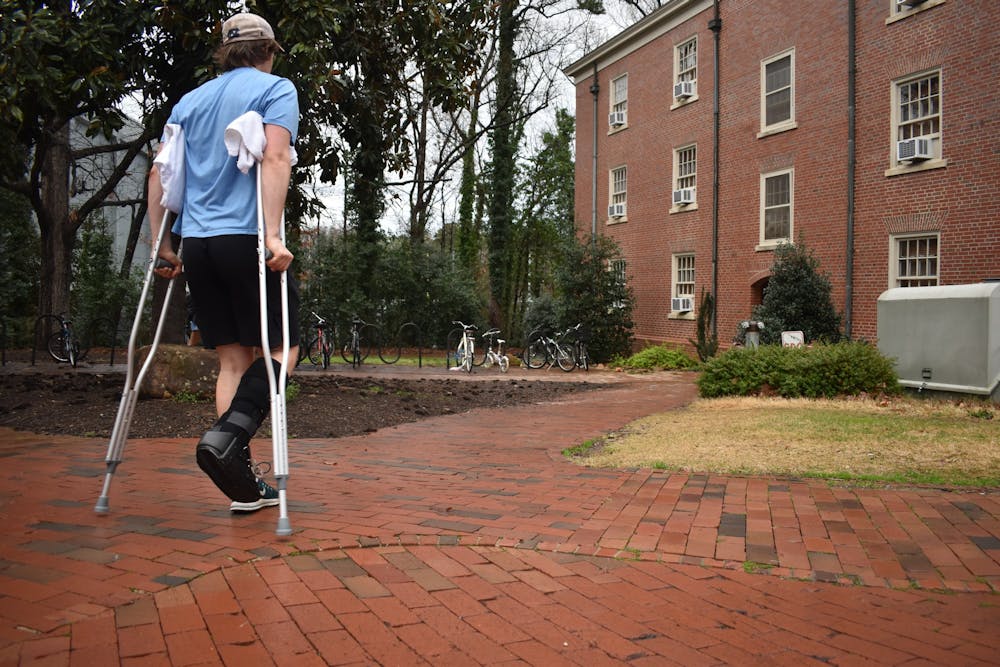Many of UNC’s academic buildings and residence halls were built decades ago, and physically altering buildings is a laborious and time-consuming task, Kraus said.
“Building takes years,” Kraus said. “Those projects are more expensive and often much longer, literally years from start to finish.”
Allan Blattner, executive director of Carolina Housing, said Carolina Housing recognizes that many buildings need to be updated and are just beginning the substantial process. Each residence hall is receiving an assessment to see the extent of changes that needs to be made, he said, though there is no set timeline for this process.
“It’s not just adding an elevator. In some cases it would be widening doors in the high rises even though we have an elevator in there, there’s a lip on the bathroom that would prevent a wheelchair from rolling in there,” Blattner said. “So, there are a number of different barriers that we need to eliminate in several of our buildings. And we’re in the process of moving through those as quickly as we can.”
Blattner said Carolina Housing is carefully crafting a renovation plan that won’t raise student rent expenses.
“We are a totally receipt-based organization, so we don’t get any money from the state or from tuition, it’s only from student rent dollars,” Blattner said. “We’re very concerned about costs and how high the rent goes for students, and so we just have to be really intentional and careful as we make these investments in something that is clearly very important to everybody, that we solve as quickly as we can. “
Students who require accessibility accommodations should start by speaking with Accessibility Resources and Services, Blattner said. If residential accommodations are needed, Blattner said students, their families and care teams will work with ARS and Carolina Housing to find a room that fits the students needs.
Blattner said there are already a variety of existing accessibility features in many buildings.
“So depending on what the accommodation is that’s warranted by the review by ARS, we put them into the appropriate room," Blattner said.
Kraus said while accommodations sometimes are the only option, they don’t necessarily create an all-inclusive environment for disabled students.
“When you just do accommodations, there is a burden on the individual who can’t sit where they want sit, who can’t come to class just a few minutes early because they have to figure out the difficult route all around campus and all around the building,” Kraus said.
There are lots of way that "othering" or oppression can add up, Kraus said.
To get the day's news and headlines in your inbox each morning, sign up for our email newsletters.
"And I think the risk is that disabled students won’t experience your campus in positive ways," Kraus said. "They won’t stick around, they won’t be retained or as successful and they’re not going to be tapping into the community that we’re really trying to tout for everyone else.”
The Disability Advocates Committee is drafting a letter to Chancellor Kevin Guskiewicz to outline some of the issues that he may or may not be aware of, Tyner said.
“I’m hoping that once he’s made aware of the issues that he’ll be able to kind of put some attention towards those things. Maybe some resources, whether that be community or whether that be financial,” Tyner said. “Any kind of resources or attention that go towards ensuring that all students have equal access to this campus, I count that as a win.”
university@dailytarheel.com



